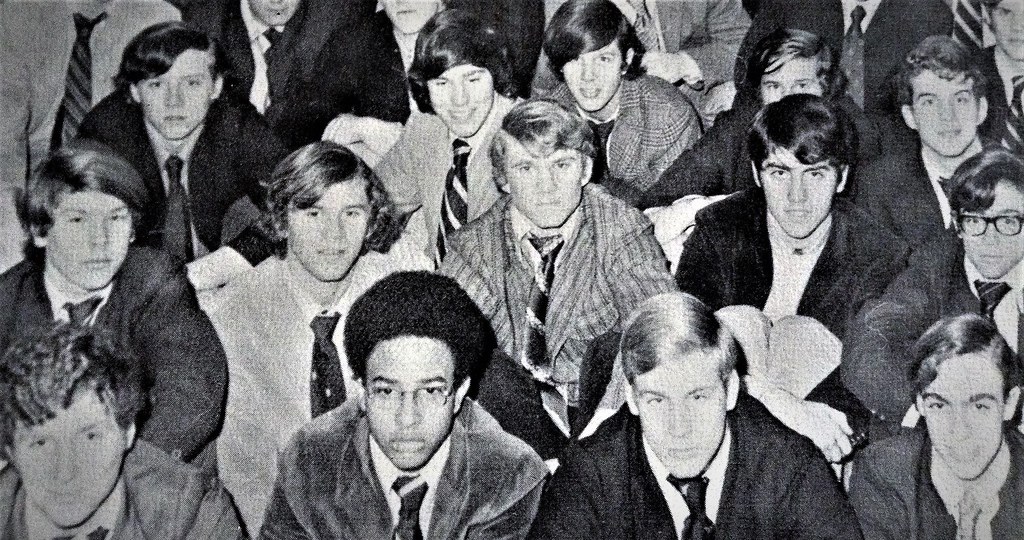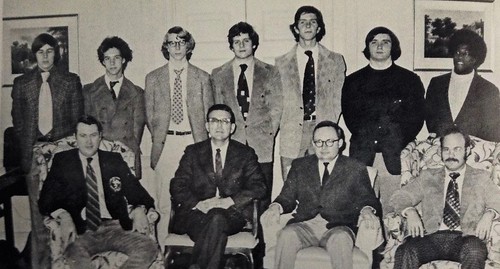Pioneering Integration at Episcopal
"If I could have an impact on a person it was worth any suffering I would go through." — David Hatcher '84
During the first decade of integration at Episcopal, African American students thrived academically and athletically, paving the path for future minority students at EHS. These students shouldered the pressure of proving to the Episcopal community that African Americans are just as smart, talented, and capable as their white counterparts. This page highlights how the first African American students battled stereotypes and gained the respect of their peers as student leaders.
Experiences of the First African American Students
Every student who integrated Episcopal was aware that there would be students who supported segregation. While adjusting to a new environment and culture, these students also dealt with racial taunts from opposing athletic coaches, torment from fellow students, and having to prove their worth on campus.
"There were a few older kids, juniors and seniors, who really didn't like the idea of integration and they would make it clear that they didn't like it... There was verbal abuse and some small fights and things like that. And if I sound a little vague about it all it's because those things were just part of the deal for us."—Tony Chase '73
Listen to Tony Chase '73 describe a moment when an opposing football coached yelled at his players to "Get that monkey, get that monkey", and how racism existed on EHS's campus.
"You have to develop a certain level of tolerance as a minority in a majority environment, especially in the time period where I came of age as a high school and college student."— Clarence Gaines '76
Academic Success
Within the first grading period of the 1968 school year, Regi Burns and Sam Paschall established themselves as academic scholars. During their four years at Episcopal, Reggie was number one on the school’s highlist (90 average or above) for every grading period and Sam was the head of the Daemon, a student writing publication (listen to Headmaster Sandy Ainslie and Tony Chase ‘73 discuss Reggie’s academic achievement). This success led Reggie to receive the Moorehead scholarship, a full ride scholarship, at the University of North Carolina. Reggie was not the only African American to thrive academically and within the next five years, multiple African American alumni were attending the Ivys. These student's successes disproved some people's beliefs that the African American students just "weren't cut out for Episcopal life", and contributed to the continuation of Episcopal recruiting more African American boys to attend EHS (Hoxton Correspondences-EHSHP.org).
"We were representing a community that was severely underrepresented at this school, and I felt the need to constantly validate my intelligence and my worth on campus." — Jonathan Beane '88
Student Leadership
On the left is a picture of Regi Burns as Head Monitor in 1972. The picture on the right shows Tony Chase as the Chair of the Honor Committee in 1973.
Being elected a monitor or Honor Committee member is one of the highest honors at Episcopal. These student leaders represent the student body and serve as an example of a moral and ethical leader. In 1972, Reggie Burns became the first African American Head Monitor and a member of the Honor Committee. Then, the following year Tony Chase was voted to serve as the first African American Chair of the Honor Committee and as a Senior Monitor. These accomplishments illustrate the impact the first African Americans had on the Episcopal community and the respect they received from their classmates.


